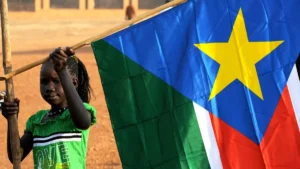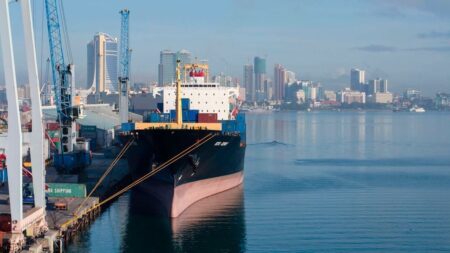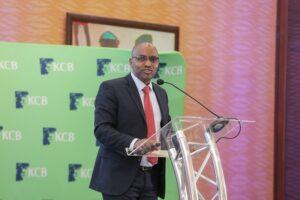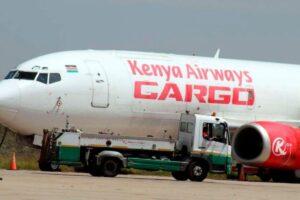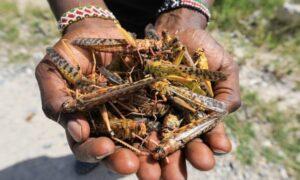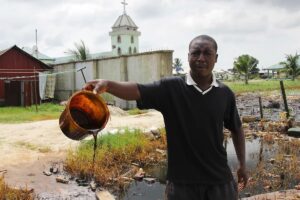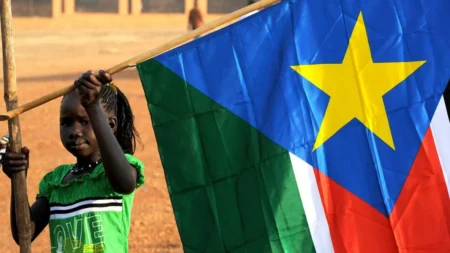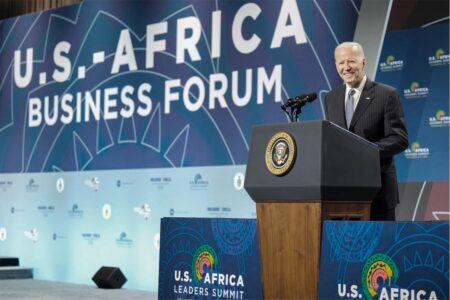- History beckons as push for Kenya’s Ruto to address US Congress gathers pace
- IMF’s Sub-Saharan Africa economic forecast shows 1.2 percent GDP growth
- The US Congress proposes extending Agoa to 2041, covering all African countries
- Millions at risk of famine as fuel tax row halts UN aid operations in South Sudan
- Empowering the Future: Humanity Protocol’s Dream Play Initiative
- TikTok Community Guidelines update aims to curb hate speech and misinformation
- Rwanda sees 39% surge in bank borrowers as Sacco and MFI loan uptake declines
- Kenya Ports Authority wins dispute case over cargo release
East Africa
- Tanzania has offered the Uganda National Oil Company (Unoc) to use the Dar es Salaam port for oil importation.
- This presents a strategic alternative amid the ongoing importation stalemate between Uganda and Kenya.
- The legal dispute between Uganda and Kenya over oil importation policies is pending before the East African Court of Justice (EACJ), with indications that Uganda may withdraw the case.
Tanzania has stepped forward with an enticing proposition that Kampala finds hard to ignore, especially regarding the ongoing deadlock in Nairobi-Kampala oil imports.
Tanzania has extended an offer to the Uganda National Oil Company (Unoc) to utilise the Dar es Salaam port for its fuel importation needs. This development comes as Uganda explores alternatives in response to Kenya’s steadfast position on Kampala’s oil importation demands.
Uganda’s grievance at the East African Court of Justice (EACJ) remains pending amid these unfolding events, casting a shadow of uncertainty over …
- In the three months to March 2023, Group’s total assets rose by 39.8 percent to close at $11.8 billion buoyed by DRC subsidiary TMB.
- Revenue increased by 26.9 percent to $267.4 million mainly driven by the non-funded income from customer transactions across the Group.
- This is the Group’s newest subsidiary in the Democratic Republic of Congo.
- It demonstrated the range and diversified income streams across the group’s businesses, adequate to cover the elevated operating and funding costs.
Regional lender KCB Group Plc posted $68.8 million in profit after tax for the first quarter 2023, a marginal drop attributable to acquisition and consolidation costs of its newest subsidiary, Trust Merchant Bank (TMB), in the Democratic Republic of Congo.
In the quarter, however, the Group recorded a strong balance sheet growth with total assets hitting $11.8 billion, with TMB contributing 14 percent to the Group’s total assets. The bank said this was …
- Insurance industry paid claims worth $400Mn in three months from October 2022 to December 2022 representing a 3percent increase compared to the third Quarter of 2022 that paid claims worth $391Mn.
- Latest statistics from the Insurance Regulatory Authority (IRA) indicate that the number of claims reported to the insurers were 2,040,600, a 12.6 percent increase compared to 1,811,141 claims reported in Q3,2022.
- General liability claims paid went up by 16.8 percent to 14,085 claims worth $42Mn from 12,055 claims paid worth $40Mn billion in the previous quarter. Non – Liability claims paid hit 1,714,723 claims worth $170Mn representing a 1.8 percent from 1,684,698 claims worth $160.31Mn reported in Q3 2022.
Insurance industry paid claims worth $400Mn in three months from October 2022 to December 2022 representing a 3 percent increase compared to the third Quarter of 2022 that paid claims worth $391Mn.
According to the Quarter 4 of 2022 claims …
For decades now, the word Somalia has become synonymous to malnutrition. You hear Somalia and the first picture that comes into your head is that of the scrawniest infant you have ever seen; hairless, ribs, collar bones and cheeks bones protruding so much it seems the child has no skin, just a pigment on the skeleton.
That is the poor, malnourished Somalia we have all grown up to hear about. In fact, the only other picture of Somalia is not any better, now you hear Somalia and you think pirates; thin, malnourished pirates wielding the menacing Russian made Kalashnikovs.
Why? History would have us believe it is just ill fate that befell the country, it geographical location is its very curse, a desert by the sea. If you don’t give it a second thought, you may just end up feeling sorry for Somalia.
However, what is the difference …
It is hard to see how African economies will bounce back to the vibrant fast growing hubs that they were over the past two decades, the pre-corona era. Countries like Rwanda that led East Africa (and most of the World) with annual economic growth averaging 9.4 percent now looks at annual growth rates of a mere 2 percent.
When the tourism and hospitality industries reopen their doors, will tourists and holiday maker flock in triple and quadruple their previous numbers and will they do so long enough for the industries to stabilize and resume growth? Will air travel shake off the blow it has taken, will it be willing to pocket less profit to attract business or will it hike prices to capitalize the anticipated initial high demand post the pandemic?
How individual industries will raise from the ashes of the pandemic is anyone’s guess but should recovery of global …
On the onset of the pandemic, the two countries, like all other countries in the region and elsewhere in the world, Tanzania and Kenya closed their borders, for awhile. However it soon dawned on both countries that closing their borders from each other (and their neighbours) is but a band-aid solution.
The underlying trade logistics are already so entwined that no country could do without the other, short of losing hard gained economic ground. So, no sooner than they closed their borders than the two countries were forced reopen them.
That is where the third set of complications surfaced, the first was not by any fault of the countries, the onset of the coronavirus. The second was their own doing, the closure of their borders in-line with international recommendations and the third was the lack of concerted, joint response.
Also read:
…Locusts could be East Africa’s new threat, after the coronavirus pandemic, which is also taking a toll in East Africa. The Locust infestation is causing chaos to the human food supply and has been wreaking havoc for the past decades, in the African continent.
The situation in some parts of East Africa is alarming, according to 27 May Locust Watch information from the Food and Agriculture Organization (FAO), the desert locust upsurge remains critical in East Africa.
“The current situation remains extremely alarming in East Africa where Kenya, Ethiopia and Somalia continue to face an unprecedented threat to food security and livelihoods. New swarms from current breeding will form from mid-June onwards, coinciding with the start of the harvest,” FAO argued.
According to a March 10, 2020, BBC News report, the locusts—which eat their body weight in food every day are breeding so fast numbers could grow four hundredfold by …
Supply chain software company MACmobile has launched a new platform that can support “live” streaming of formal market retail “sales out” data from till points as well as map the relevant stock holding in store simultaneously in the Kenyan Market.
This follows a partnership with Cognizance Processing who built the platform and will be available for Kenya wholesalers and retailers.
The platform will reflect “sales in” data to retailers while mapping stock holding in the multiple warehouses being used in the distribution supply chain.
Daily retail sales feeds and basket data feeds (when made available), stock in store and stock at the distribution centre, can be recorded and made available in a live feed to a dashboard.
This enables the manufacturer to identify Key Performance Areas (KPAs) against which performance benchmarks are established and deviations reported against. The deviation reporting is live and communication is made to merchandisers and/or retail …
Equity Group Holdings Plc has posted a 14 percent decline in net profit in the first three months of the year to hit Sh5.3 billion, attributable to increasing its loan loss provision by ten fold to Sh3 billion from Sh300 million the previous year.
Profit before provisions was up by 10 percent to Sh10 billion from Sh9.1 billion the previous year.
“The global Covid-19 pandemic has mutated into a global economic crisis, occasioned by a sudden standstill of economic activity as a result of the global lockdown. This has introduced unprecedented uncertainty within the global financial systems prompting us to adopt a conservative approach – fortifying our balance sheet and assuring ample liquidity to support our customers,” James Mwangi Group MD and CEO said.
The Group’s total assets went up by 14 percent year on year growth to Sh693.2 billion from Sh605.7 billion driven by a 17 percent growth in

